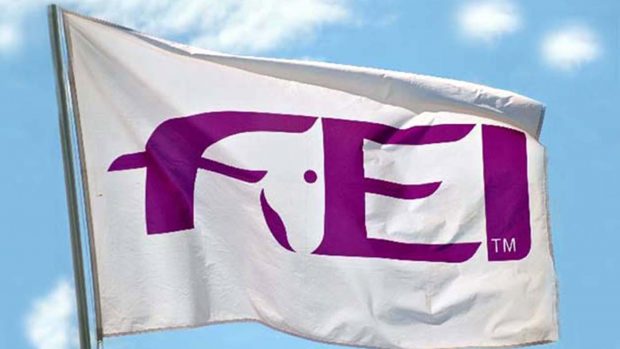Concerns about equine doping and severe injuries in the Middle East are already the worst-kept secrets in FEI endurance. But this niche discipline seems set for wider scrutiny following the Godolphin steroids scandal that rocked the racing world.
Mahmood al Zarooni, who trained for Sheikh Mohammed’s elite Godolphin operation at Moulton Paddocks, Newmarket, was banned for a record eight years after 11 racehorses tested positive to anabolic steroids, following a spot-check by the British Horseracing Authority (BHA) last month.
Al Zarooni also admitted giving steroids to four other horses.
Sheikh Mohammed is the ruler of Dubai, one of the seven principalities of the United Arab Emirates (UAE). He personally underpins the global racing economy with worldwide bloodstock investments worth billions and owns an estimated 5,000 racehorses.
His junior wife, Princess Haya of Jordan, is president of the FEI, the body that governs global horse sport, and has actively campaigned for clean sport.
Sheikh Mohammed said he was “shocked and appalled” by al Zarooni’s actions. He ordered root and branch investigations into stable management practices, as well as co-operating fully with the BHA.
The Swiss demand change
But al Zarooni has previously worked as assistant to Mubarak Khalifa Bin Shafya — who came before the FEI tribunal in 2008 and 2011 for endurance doping matters. He has trained both endurance and racehorses at Sheikh Mohammed’s Al Asaafa stables in Dubai.
This, combined with renewed coverage of the six-month suspension served by Sheikh Mohammed himself in 2009 (for a horse testing positive for banned substances), has put Middle Eastern endurance under a media microscope. This comes in the week the FEI is due to respond to demands for change from the Swiss Equestrian Federation (SEF).
In a letter, seen by H&H, SEF president Charles Trolliet warned that the “negative evolution” of endurance in the Middle East is now so unacceptable that concerned endurance riders and officials elsewhere in the world believe a breakaway movement should be considered.
In his letter, Mr Trolliet highlights a “dramatic incidence” of doping and “incidences of inequity” [unequal treatment] in competition — the latter involving completely enclosed “recovery areas for certain riders” around vetgates.
These included the World Championships at Euston Park, Norfolk, last year, where Sheikh Mohammed won the individual title and the UAE team gold.
Regarding doping, the SEF produced graphs using FEI tribunal data showing how, from January 2010, 41 endurance horses worldwide tested positive for various banned and controlled substances.
More than 80% of the disciplinary cases involved FEI Group VII (UAE, Saudi Arabia, Bahrain, Jordan and Qatar) and seven of the 13 people consequently suspended from Group VII were from the UAE.
Horses ridden by three medallists, all from the UAE, at FEI championships in the past eight years also tested positive.
‘Shocking’ vet reports and ‘cheating’
Mr Trolliet continued: “We abstain from listing the multitude of witnessed and documented cruelties to horses, including shocking veterinarian reports concerning health issues, tremendous fracture frequencies and dangerous treatment protocols… as well as cheating actions before and during the endurance races, in parallel with the non-taking of responsibility of certain officials and FEI staff.”
Ingmar de Vos, secretary general of the FEI, told H&H that a comprehensive response was being sent this week and the Swiss had “expressed their satisfaction with the FEI’s approach”.
Asked to confirm if the FEI had sought a meeting earlier this winter to warn the UAE that its FEI endurance rides faced disaffiliation, Mr de Vos said: “Given the growth of endurance in the UAE, meetings between the FEI and the UAE Equestrian Federation are taking place on a regular basis both in [FEI headquarters at] Lausanne and the UAE.”
In April 2012, distinguished vets debated increased doping and fractures in endurance at the FEI open forum in Lausanne. UAE delegate Dr Hallvard Sommerseth, a vet, identified the UAE as one of the countries being referred to.
He said that the FEI practice of making riders the “person responsible” for doping violations meant that, in the Middle East, the “wrong person” was often punished; there, endurance hinges on the trainer, with horses competed by jobbing jockeys who usually had no prior knowledge of their mounts.
He said the UAE federation undertakes more national testing than most, reporting offenders to the FEI, which then posts offences online for the duration of the winter season — making the incidence look worse than it is.
This news story was first published in Horse & Hound magazine (2 May 2013)




